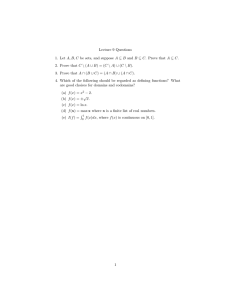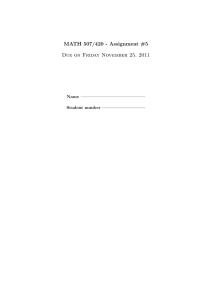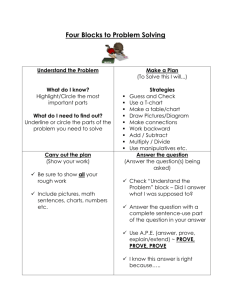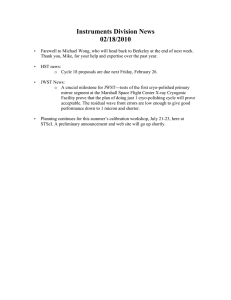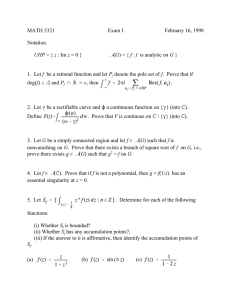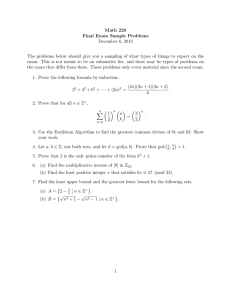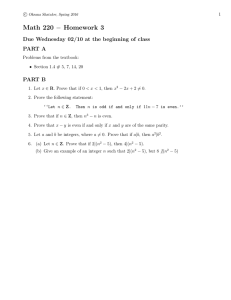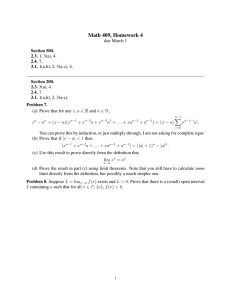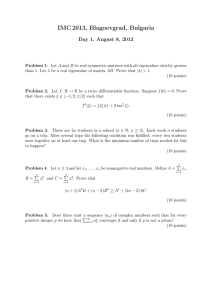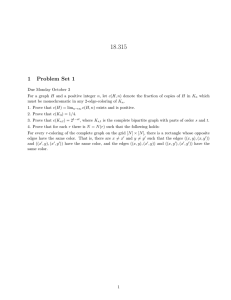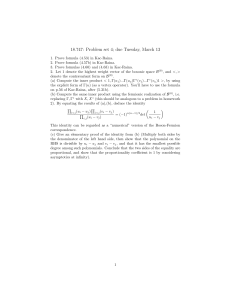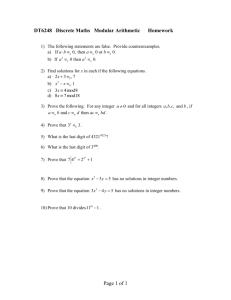Legs Eleven Choose any two numbers from the 7 times table. Add
advertisement
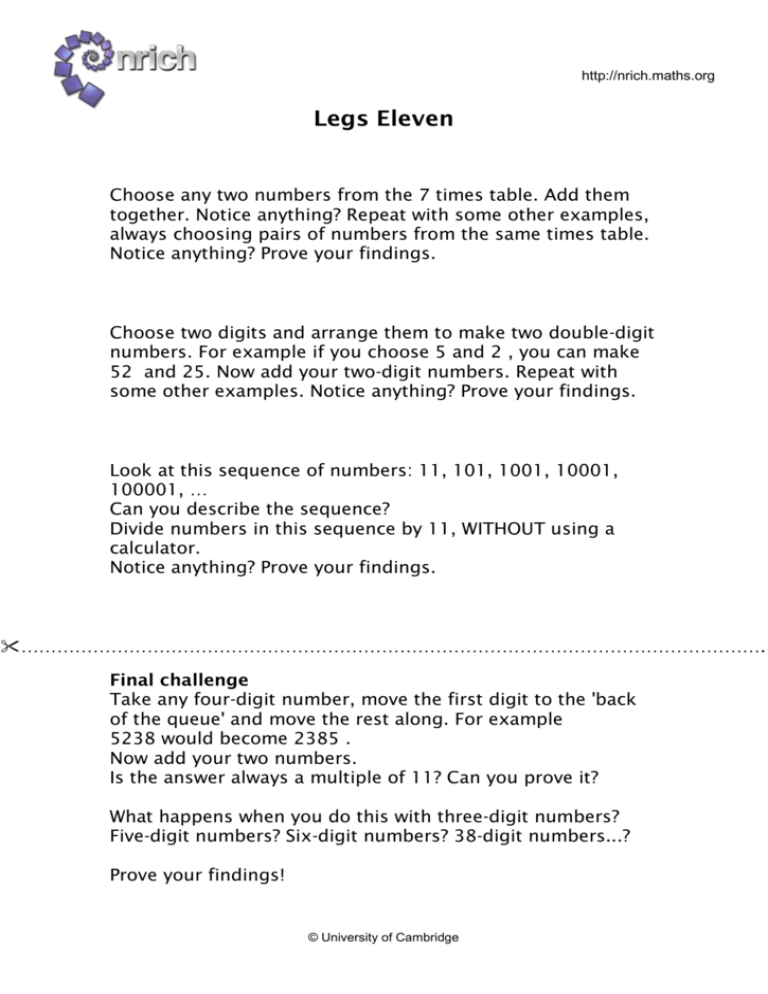
http://nrich.maths.org Legs Eleven Choose any two numbers from the 7 times table. Add them together. Notice anything? Repeat with some other examples, always choosing pairs of numbers from the same times table. Notice anything? Prove your findings. Choose two digits and arrange them to make two double-digit numbers. For example if you choose 5 and 2 , you can make 52 and 25. Now add your two-digit numbers. Repeat with some other examples. Notice anything? Prove your findings. Look at this sequence of numbers: 11, 101, 1001, 10001, 100001, … Can you describe the sequence? Divide numbers in this sequence by 11, WITHOUT using a calculator. Notice anything? Prove your findings. ……………………………………………………………………………………………………………. Final challenge Take any four-digit number, move the first digit to the 'back of the queue' and move the rest along. For example 5238 would become 2385 . Now add your two numbers. Is the answer always a multiple of 11? Can you prove it? What happens when you do this with three-digit numbers? Five-digit numbers? Six-digit numbers? 38-digit numbers...? Prove your findings! © University of Cambridge
